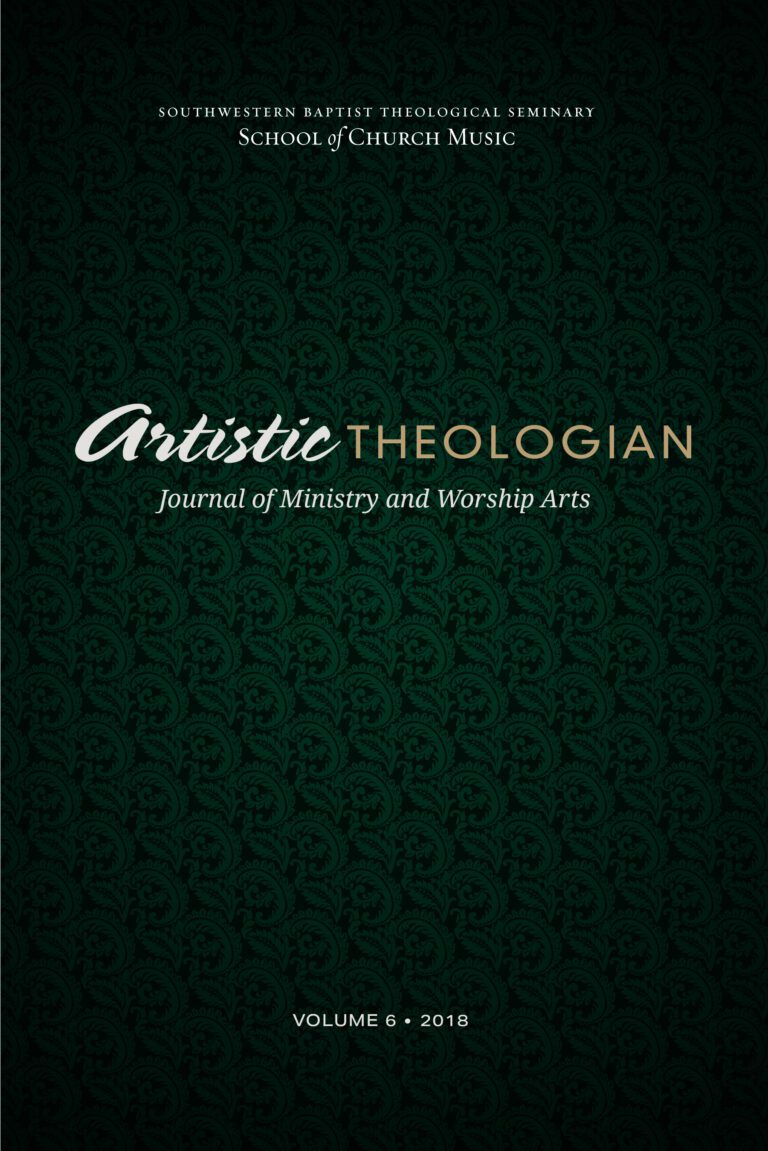
When We Come Together
Artistic Theologian
Volume 6, Summer 2018
Editor-in-Chief: Scott Aniol
Sing! How Worship Transforms Your Life, Family, and Church, by Keith and Kristyn Getty. Nashville: B&H Publishing Group, 2017. 176 pp. $12.99.
“Though maybe misunderstood, regularly a bone of contention, and often under-practiced, congregational singing is one of the greatest and most beautiful tools we have been given to declare God’s ‘excellences,’ strengthening His Church and sharing His glory with the world” (xxi–xxii). Keith and Kristyn Getty, musical artists and writers of hymns including “In Christ Alone,” “The Power of the Cross,” “By Faith,” and “Oh Church Arise,” write to encourage Christians to “sing truth, and to sing it as though it is true” (98–99) in their book titled Sing! How Worship Transforms Your Life, Family, and Church. They argue that God intends Christians to be “a people joyfully joining together in song with brothers and sisters around the world and around His heavenly throne” (xxvi).
They explain in the first two chapters that people were created and are commanded to sing, and then they argue that believers are compelled to sing by the gospel. In Chapter Four, the authors insist that Christians should sing with both their hearts and minds, and in Chapter Five they explain that believers should sing with their families. Next, the Gettys turn to singing in corporate worship. Lastly, they claim that congregational song radically witnesses to the unregenerate.
The Gettys argue for the importance of singing in several ways. For example, they claim that singing shapes a person’s heart, soul, and mind, and they state that song lyrics shape “our priorities, our behavior, [and] our loves” (37). The “soul food” consumed in corporate worship helps the believer to thrive throughout their week (38). The gospel needs to be sung: “We need to sing over and over again how we were once under the wrath of God, condemned to die, without even a hint of hope” (39). They suggest that the music sung on Sundays is like a soundtrack that motivates the Christian throughout the week, and they examine how the psalms can shape believers through showing who God is and expressing how they can deal with life. The Gettys explain that a believer needs to sing songs that deepen their joy in God (44) and that believers should not only sing when they are happy, but they should also sing to the Lord when they are mourning. They strongly defend the congregational element of singing by stating that “we sing for our brothers and sisters in those moments or seasons when they cannot,” and they express the spiritual nourishment of singing by proclaiming that “we sing, as the Psalms train us, to help us bring all of our lives, failures, successes, losses, gains, dreams, and ambitions into gospel perspective” (46–47). Singing the proper diet of songs also helps the Christian to keep an eternal focus. The Gettys explain that congregations need to sing these songs to encourage others to also focus on eternity in heaven (50). What a congregation sings shapes them, so the Gettys encourage congregations to sing spiritually nourishing, gospel-centered songs.
The Getty’s also argue that Christians should sing with the local church. They bemoan the fact that many who claim Christ are forsaking the assembling of the body, and they state that “singing as one united church body reminds us all that we are not defined by the rugged individualism promoted by modern society” (76). For a church to be healthy, it must be a singing church. When Christians sing in corporate worship, they are expressing what they desire the church to be and what they hope to be as church members. This argument points directly to the Gettys’ thesis because it proclaims the importance of Christians singing together.
Overall, the Gettys wrote a fine work, but there are areas in which it could be improved. They state that truth-filled music moves a Christian’s heart “with depth of feeling and a whole range of emotion” without explaining what they mean by emotion (2). The undefined word “emotion” is problematic because it has many different meanings. The Gettys write about the blessing of composing a melody that may touch a person’s soul, but they neglect to speak on how a melody does this (6). They could have improved their book by adding a section that explains how music does or does not communicate. They make a strong claim that singing shapes one’s heart, mind, and soul, but they did not spend enough time explaining how or why singing accomplishes this (52, 80).
Sing! How Worship Transforms Your life, Family, and Church is theocentric, and it is biblically rich. The Gettys do a fine job pushing against societal individualism in their robust emphasis on congregational singing, providing many thought provoking insights. Laymen in the local body are the intended audience of this book. The Gettys include four appendices written in the style of blog posts titled: “For Pastors and Elders,” “Worship and Song Leaders,” “Musicians, Choirs, and Production,” and “Songwriters and Creatives.” Overall, this book is a strong addition to the field of congregational song.
John Gray
Southwestern Baptist Theological Seminary





